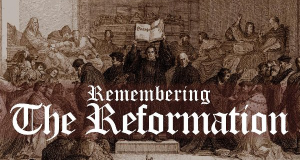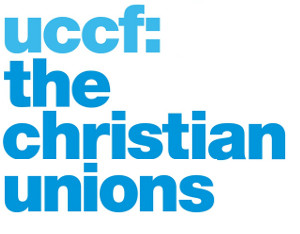 (continued from blog post of August 18th) As I indicated in a postscript after a recent blog, the news from Trinity is that there is very little news. The situation was made complicated by a complete breakdown of Nigel Davies’s computer and his wifi connections so that he could neither send nor receive emails for well over a month. He is now back online and also he started up again with his protests outside the church last Sunday morning.
(continued from blog post of August 18th) As I indicated in a postscript after a recent blog, the news from Trinity is that there is very little news. The situation was made complicated by a complete breakdown of Nigel Davies’s computer and his wifi connections so that he could neither send nor receive emails for well over a month. He is now back online and also he started up again with his protests outside the church last Sunday morning.
The situation that seems to exist at present is that there are going to be two reports about the church coming out in the next two or three weeks. To remind my readers, I should mention that the most important of these reports is the one being put together by John Langlois. He originally chaired a group of five and he began his work in May with the full blessing of both the church and the Evangelical Alliance. At some point in July, one of the members of his Commission, Terry Mortimer, complained to the church that John was not being impartial. According to the discussion, this accusation of partiality perhaps related to the fact that John’s approach was a hard-hitting, forensic and legal one which Terry could see would be damaging to the future of Trinity. One of the major concerns of leaders and members alike seems to be the prospect of expensive and damaging lawsuits. The church has, over the years, had to face a number of these. Although the sums agreed with complainants has not been published because of gagging orders, the church knows full well that a report written by a lawyer might very quickly attract a large number of legal actions which would very quickly bankrupt the organisation. As a result of Terry’s complaint, the church decided to disband the Commission. This decision quickly rebounded on them because John declared that he was going to continue even without their approval. At last, he announced in an email, he would be able to do the job he had been given without interference from Terry on the one hand, and the church on the other. By the time the church attempted to stop John’s Commission, he had already heard a considerable number of representations. One can see that any person of integrity, having heard story after story of pain and betrayal, is not going to simply abandon these people or their accounts. We expect that, come what may, John’s account of Trinity’s life and history will be published in the next few weeks.
When Trinity made its decision to disband the original Commission, they realised that they could not simply walk away from the process altogether. The allegation of historical rape still hangs over the church and no doubt the Evangelical Alliance would not accept a decision by the church to seek to avoid the whole process just on the basis of a claim of partiality over its work. I suspect that the Evangelical Alliance is probably also not at all happy at the effective sacking of John Langlois. He was after all, their nominee for the task. Nevertheless the organisation has kept very quiet over the whole incident. We can only speculate as to what has been said, but I have voiced the opinion that the EA are probably extremely disturbed at the way things have turned out. Following the disbanding of the first Commission, Trinity Brentwood then decided to bring in two people known to them, Phil Hills and David Shearman, to produce another report. In commissioning this work, they emphasised that the new report would have a pastoral emphasis. They recognised, in other words, that there were among the ex-members some who had been damaged and abused by the behaviour of church leadership. The pastoral approach would no doubt bring in the promise of access to supportive counsellors and the like to help those who were dealing with the process of recovery and healing. This would still be a softer approach than the one that John Langlois had started to adopt, the legal, analytical and forensic.
Since Nigel Davies has come back online, there has been revealed a difference of opinion among those who have posted remarks. Nigel himself has met the would-be authors of the second report, Phil and David, and he expresses some sympathy for the work they are trying to do. He believes that although many of the survivors of Trinity/Peniel refuse to speak to them that these new commissioners genuinely want to understand the history of the church and how it might be allowed to continue in the future. This is his considered opinion after speaking to Phil and David for two hours. I must confess that I have every sympathy with those who do not wish to meet with the second commissioners. The general opinion of those who have met John Langlois is that they have already given evidence in front of a trusted listener and do not want to go through the same process a second time. The remarks made on the blog also suggest that what the witnesses encountered with John and the original Commission was as practitioners of strict but compassionate justice. The impression we get with these two ministers, Phil and David, is that, however well intentioned, they are compromised by their existing associations with the church. Those who do not trust Phil and David have some solid grounds for their hesitation. I would also however simultaneously respect Nigel’s assessment that the two men, whether or not they meet many of the survivors, are conscientious and well-meaning. In the last resort the value of their report will in any case be less valuable. This is for the simple reason that they lack the skills and experience of someone like John Langlois to penetrate a complex and difficult situation. No amount of goodwill or honesty will make up for this lack of experience.
I am hoping to return to this topic of Trinity Brentwood by the first week of November. It will be fascinating, if both reports are published, to compare them and to see what new information is revealed about the church, its past, present and future. My own instinct tells me that John Langlois’ report will be hard-hitting and possibly fatally damaging to the church. It is hard to imagine how any published report from a lawyer can be written which will not have the consequence of providing material relevant to some future court case. The second report will no doubt contain information about ways that Trinity should be far more proactive in providing pastoral and psychological support for its many victims. This second report will probably also suggest that all the bad damage committed against members belongs to a period firmly in the past. John’s report will, my hunch tells me, take a harder line. Not only will it lay out all the ways that the church harmed people under Michael Reid, but it will also show how a failure to face up to that poisonous legacy has compromised its work right up to the present. We see that there are interesting times ahead. This blog will attempt to keep its readers right up to date.








